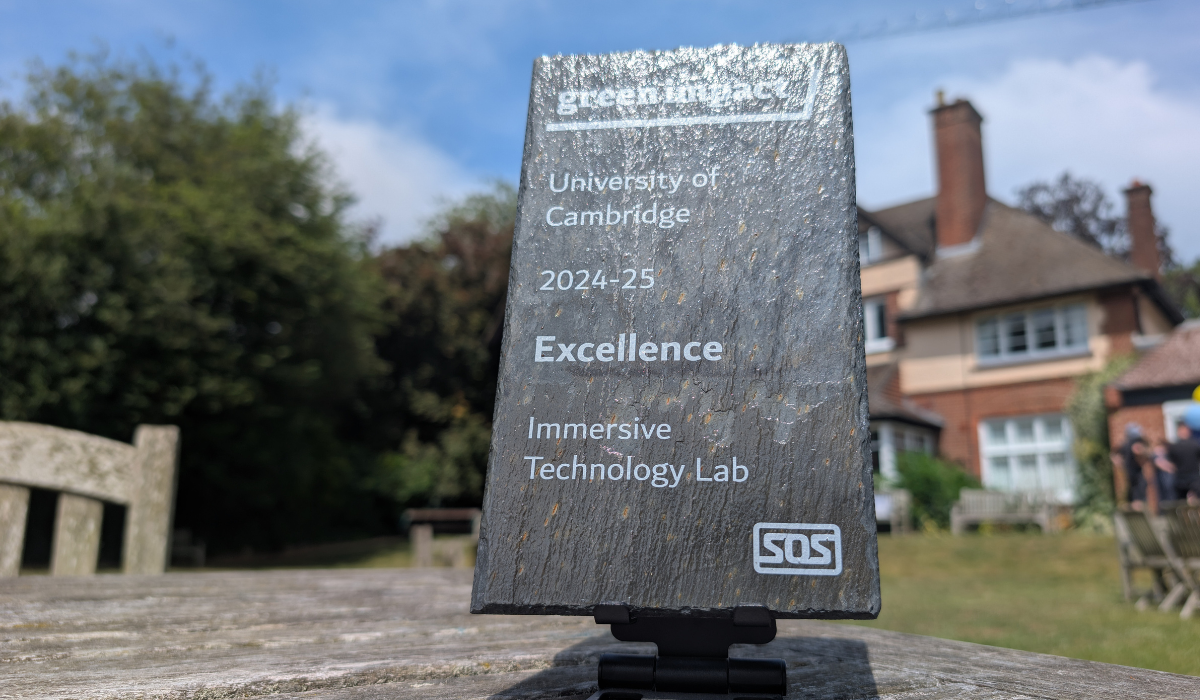The award further signposts the College as a pioneer at the University of Cambridge.
Lucy Cavendish College is proud to announce that we have once again received the Excellence Award, our third consecutive win. This prestigious award is part of the Green Impact scheme, a United Nations-supported programme that recognises organisations delivering high-impact, innovative sustainability projects that go beyond standard environmental practices.
The Excellence Award is the highest accolade within the Green Impact framework and is reserved for outstanding initiatives that demonstrate originality, leadership, and measurable impact in tackling global environmental challenges. With thousands of organisations participating in Green Impact worldwide - including the University of Cambridge - winning this award three years in a row is an exceptional achievement and a testament to Lucy Cavendish’s unwavering commitment to innovation and impact.
This year’s award-winning project, spearheaded by Dr Chris Macdonald, used emerging technologies to improve how we communicate and understand emissions data.
As Chris explains, “The project was a response to the fact that it can be challenging to communicate climate change: the terminology can be confusing, the way in which we measure emissions can be non-intuitive, and there is a range of complicated psychological barriers. The danger is that climate change can appear distant, insurmountable, or worse still, non-existent. A key part of the challenge is that with the human eye, we cannot see the accumulation of greenhouse gases in our atmosphere. To address this, I used virtual reality to better translate and visualise emissions data; I made the invisible visible.
The virtual reality classrooms translate key data and concepts from something amorphous into something tangible and experiential. For the first time, students across the globe can ‘climb’ emissions, ‘swim’ through water use data, ‘traverse’ land use metrics, and ‘hold’ greenhouse gases.
When demoing the platform at the British Science Festival last year, it became clear that not only did the virtual classrooms help people to better understand the data, but it also helped them to recall information which facilitated solution-focused discussions and planning. It was great to see it increase not only engagement and comprehension but also hope and action.
Importantly, I have created the VR classrooms to be accessible via a computer, smartphone, or VR headset. On the smartphone and computer versions, users control an avatar from a third-person perspective, much like a video game. With a VR headset, they are fully immersed and see from the avatar’s perspective. To further increase accessibility, I created a free hosting site and published everything with full open access. This aligns with my broader commitment to focus on projects that benefit people and the planet and to publish everything with full open access. Each project will be accessible via multiple devices and will be instantly and freely available to all.
Stay tuned for more updates on this and other projects. There is no shortage of inclusive, innovative, and impactful projects at Lucy Cavendish College – a trailblazer at the University of Cambridge!”




